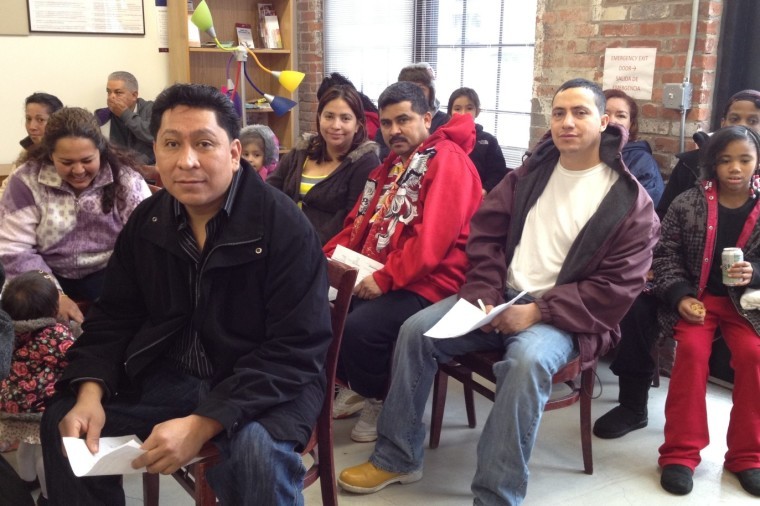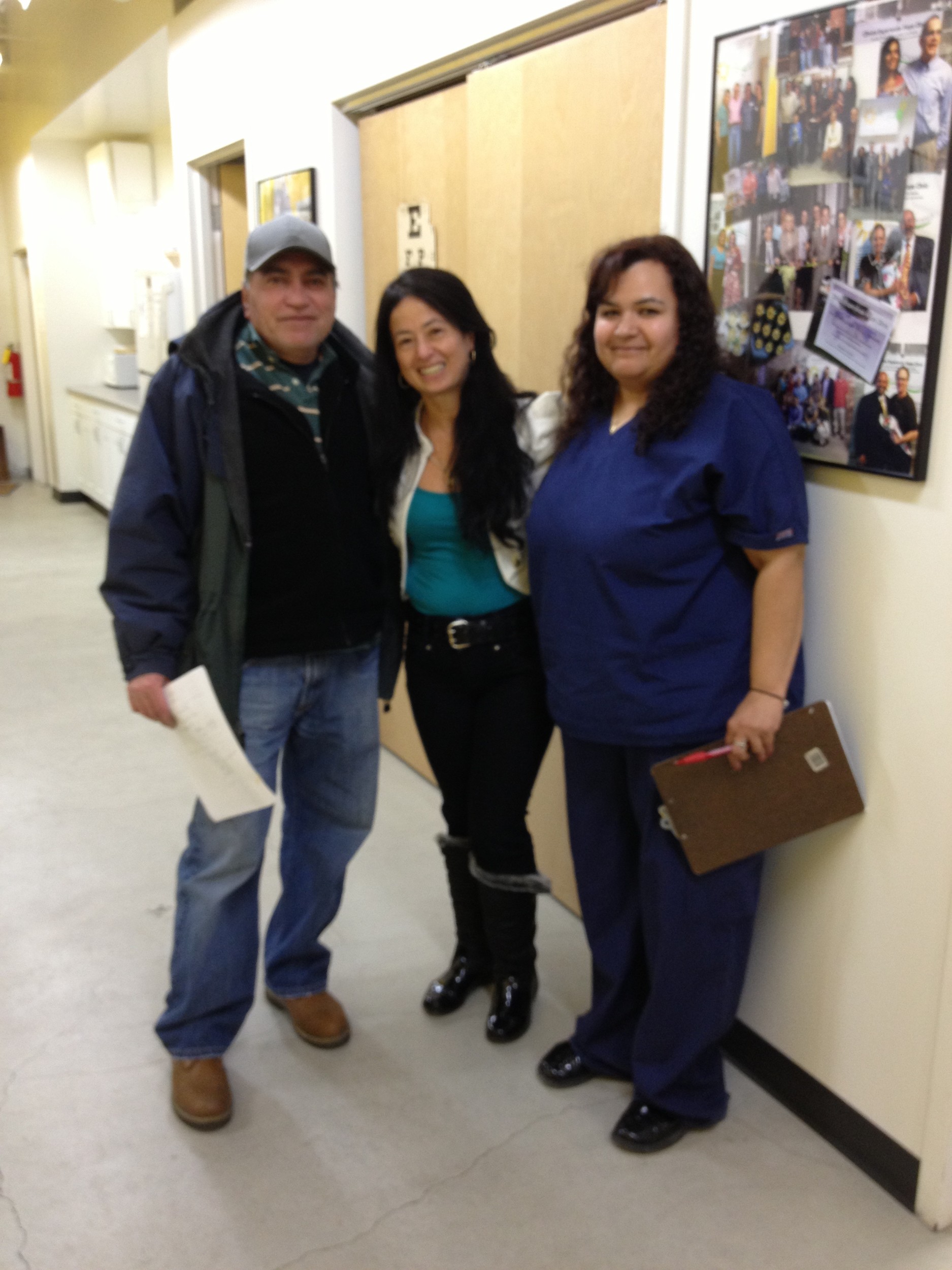Quantifying the value of community health navigators
Vida Sana and navegantes at Clinica Esperanza show how public health interventions can improve outcomes
PROVIDENCE – A Centers for Health Equity and Wellness, or CHEW grant, funded by the R.I. Department of Health in 2013, is already showing impacts on the outcomes of chronic disease far surpassing what any public health leaders might have expected.
In Olneyville, Dr. Anne De Groot and her navegantes at Clinica Esperanza have established a successful community health program. It is built on the experiences of global health experts around the world, and adapted to the Rhode Island health care delivery system – and it's financing realities of caring for the uninsured.
Called “Vida Sana,” patients with a clustering of chronic conditions called “metabolic syndrome” (obesity, Diabetes Mellitus, hypertension and hypercholesterolemia), are enrolled in a patient-education class.
These patients are supported during their clinical encounters [and in the community] through bilingual community health workers. The health workers have specific skills to help patients change their level of physical activity, diet and social engagement.
Recently published in a peer-reviewed scientific journal, De Groot’s report on the outcomes of several dozen adult who were enrolled in Vida Sana soon after they presented for care at the Clinica Esperanza show dramatic improvements in glucose control, reduced blood pressure, weight loss, increases in exercise and improved sense of well being. [See link to study below.]
In addition to the impressive preliminary findings, this is the first and only “innovative care model” being tested in Rhode Island that has had a peer-reviewed evaluation report published.
Validating the approach
Why is this important? Health care costs will only be controlled in the long term, if and when people with chronic disease are supported in their homes, workplaces and neighborhoods where they live through interventions that improve the underlying conditions that produce population health: healthy food, housing and social capital.
For several decades, in an attempt to produce population health with more medical care, our health care system has been slowly bankrupting us. Newly restructured payment reforms are now rolling out, here in Rhode Island, in Massachusetts and in other states. But these payment reforms will have no long-lasting impact on the cost of care – unless the root causes of health disparities are addressed.
One-on-one interview
I interviewed one of Annie’s top navegantes to get the real story about Vida Sana, the health education and social capital building intervention they have implemented.
Damaris Rosales first told me her own story of her training in an adult education program in Cranston, where she got her GED and then became certified as a health assistant.
The skills she learned from the training program enabled her to be work at Clinica Esperanza as an intern, where she took blood pressures, temperatures, collected intake data and brief medical histories from the largely Guatamalan immigrants that live in the neighborhood – and that have become the major utilizers of the clinic.
When her internship ended and she graduated, she was hired into the navegantes program where she had to learn about the process for qualifying the largely uninsured adult patients for free care at Lifespan, the major integrated health network supporting the efforts of the clinic.
She learned to collect data that would qualify the patient for free care and create the record for tracking patients through a system that is characterized by linguistic and cultural barriers of many kinds, as well as long delays in accessing specialty care and other related medical services.
I then asked her to tell me about some of her clients and what she has experienced, as a partner in their care.
First she told me about Juan, a 50-something year old K’iche’-speaking indigenous Guatemalan from the Carribean coastal region of her country. [K’iche’ is a Mayan language.]
She communciated with Juan, using English, Spanish and other non-verbal techniques, because her Spanish and his were so different and the dialect he spoke was one she could not understand at all.
Juan had problems with multiple cysts covering his body. After getting a complete exam at the clinic by one of the volunteer primary care physicians, Rosales assisted Juan through the application process at Rhode Island Hospital for free care.
In six months, he was given an appointment to see a dermatologist who performed the necessary surgery for his condition.
As Juan’s navegantes, she attended all sessions with the treating physician to help with interpretation ( the hospital had no interpreters who could help a K’iche’ speaker), and did daily phone follow-up to make sure her patient was following wound care recommendations.
Six months later, Juan developed a new cyst, this time infected, and needed to go back to the hospital for an emergency surgery.
Again, the navegantes accompanied the patient, stayed as interpreter and did follow-up to make sure all home care was attended to. His outcome was excellent and he continues to work and participate in the group education sessions as a part of the Vida Sana program.
When I search for an explanation about how our medical care system cannot find a way to institutionalize these community health worker models, I keep remembering something that Winston Churchill said about Americans: we can be counted on to eventually do the right thing, but only after exhausting all other options.







